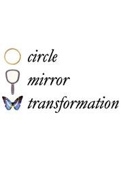The Actor Crushes of Circle Mirror Transformation Scribe Annie Baker
About the author:
Annie Baker’s delightful play Circle Mirror Transformation opened in October to fabulous reviews, snagged a spot on Times critic Charles Isherwood’s “Best of 2009” list, closed, and now has reopened (a rarity!) at Playwrights Horizons. Think of it as a holiday gift: another chance to savor Baker’s funny, big-hearted tale of a beginners’ acting class at a Vermont community center. The teacher, an earth-mother type beautifully played by Deirdre O’Connell, leads her motley collection of students (a former New York actress, a lonely divorced man, an introverted teen and the teacher’s own husband) in acting games that become ever-more revealing and touching. Broadway.com asked Baker, author of Body Awareness and the forthcoming The Aliens, to reflect on her experience with Circle Mirror Transformation. Rather than patting herself on the back for writing one of the best plays of the year, Baker chose to wax eloquently on O’Connell and the rest of her off-Broadway cast.
![]()
I first saw Didi [Deirdre] O’Connell perform in 2002. She was playing the title role in Mac Wellman’s Antigone at Dance Theater Workshop, and she was just horrifyingly, disgustingly good. The whole production was amazing, but Didi blew my mind. And so, at age 21, I became obsessed with her. She was my first real actor crush. I thought about her all the time. I dreamed up imaginary parts and plays for her, picturing her beautiful, expressive lips forming words that I had written. Sitting alone in my room, I would shake my head and chuckle, imagining her ingenious line deliveries. Sometimes I don’t think actors fully understand how creepy playwrights are. We are really, really creepy.
For the next five years, I stalked Didi. I don’t think she ever realized I was stalking her, but that’s what made me such a good stalker. I went to see every play she was in, then lurked outside afterwards and unsuccessfully tried to make eye contact. When I had my first reading in 2006, in the back of an Irish pub, I convinced a friend of a friend of a friend who was friends with her to ask her if she’d be willing to be in it. She politely declined—I think she was out of town. I cried into my pillow.
Stupidly, I kept writing parts for Didi, still having never met her. In 2008 she finally agreed to participate in a week-long workshop of one of my plays, Circle Mirror Transformation, at New York Theatre Workshop’s summer residency program. And then she agreed to come with the same play to the Sundance Theatre Lab in Utah! For three weeks!! And we lived together!!! In a HOUSE!!!! Eventually I calmed down. It’s kind of obvious where this story is going—that fall, Tim Sanford offered the play a slot in Playwrights Horizons’ 2009-10 season. We asked Didi to do it. She said yes. And my six-year-long stalker dream was fulfilled. Now the play has been extended, and I guess if I wanted, I could spend six nights a week watching Didi recite lines that I have written for her. My 21-year-old self would be horrified to know that I don’t actually do that.
The amazing thing is, Didi is only a part of what has made working on this play such a wonderful experience. Writing Circle Mirror Transformation was incredibly difficult and at times bordering-on-joyless. After I finished the first draft, I stared at my computer screen, dubious, wondering if I had just written The Worst Play Ever. But it unexpectedly became this lucky little project. My first-choice director (Sam Gold) got on board. We were accepted into the Sundance Theatre Lab. And when it was time to cast the play this past spring, all my first-choice actors agreed to do it.
I had developed a number of actor crushes over the years that were just as creepy and all-consuming as my Didi Crush of 2002—Reed Birney was my actor crush of 2007. Peter Friedman and Heidi Schreck were my actor crushes of 2008. I had stalked all of them at some point. And then Tracee Chimo—whom I’d never met before—was so good on the very first cold read of the play at Sundance that I felt like I had written the part for her specifically, and that no one else could ever play it.
Writing all this makes me feel like a cheesy theater person. I hate when people pretend they love everybody they’re working with. But in this case, I really, really do, and it will probably never happen again—I will probably never love all my actors this much again, love them all equally, devotedly—so I thought I’d write about how lucky I feel and risk sounding like a cheesy theater douchebag.
Related Shows
Articles Trending Now
- Death Becomes Her, Maybe Happy Ending, Oh, Mary! and More Earn Nominations for the 2025 Broadway.com Audience Choice Awards
- Maybe Happy Ending Will Be Hitting the Road on a National Tour, Launching Fall 2026
- Ali Louis Bourzgui Reflects on Joining Hadestown, His Upcoming Album and Processing the Experience of Tommy
